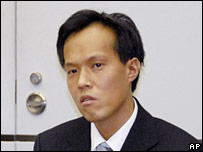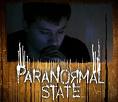“I lay down…in a grassy area, which felt good in the sunshine, and eventually I fell asleep,”
Mitsutaka Uchikoshi, 35, went missing on October 7th, 2001, after he and some buddies went on a climb on Mount Rokko in Japan. Mitsutaka deviated from his friends, fell and lost consciousness. What happened next could be hailed as a great medical mystery. The 35 year-old man was rescued on October 31st, with severe blood loss, organs failing and in state of critical hypothermia. Amazingly enough, Mitsutaka was still alive!
According to the medical reports, Mitsutaka had almost ‘no pulse, his organs had shut down and his body temperature [had] dropped to 22C (71F) when he was found.’ 24 days exposed in the cold. No water, no food. Just Mitsutaka’s body in a patch of grass. Apparently in a deep state of hibernation.
Such stories of miraculous survival brings to attention the strange abilities that the human body harbors. If it is at all possible to induce hibernation (to such an extreme) on a human patient, then there is no telling what the medical field can accomplish. A person suffering from a terminal illness could be put on a “suspended animation” state. Where the disease would find itself slowing down and unable to spread as quickly.
3 commentsFull source: BBC News UK | Asia
Mitsutaka Uchikoshi, 35, went missing on 7 October after going with friends to climb Mount Rokko in western Japan.
He had almost no pulse, his organs had shut down and his body temperature dropped to 22C (71F) when he was found.
Medics say they are still puzzled how he survived because his metabolism was apparently almost at a standstill.
Mr Uchikoshi is believed to have tripped and lost consciousness after leaving his party to descend from the mountain on his own.
“I lay down… in a grassy area, which felt good in the sunshine, and eventually I fell asleep,” Mr Uchikoshi told reporters at a news conference at a hospital in Kobe, where he was treated.
“That’s the last thing I remember,” he said.
He was found by rescuers on 31 October.
“He fell into a hypothermic state at a very early stage, which is similar to hibernation,” said Dr Shinichi Sato, who treated Mr Uchikoshi.
“Therefore, his brain functions were protected without being damaged and have now recovered 100%. This is what I believe happened,” he said.
Mr Uchikoshi – who had been treated for severe hypothermia, multiple organ failure and blood loss – was released from hospital and returned home on Tuesday.
Professor Hirohito Shiomi, a hibernation expert at a university in Hiroshima, was quoted by the Associated Press news agency as saying the case was “revolutionary, if the patient truly survived at such a low body temperature over such a long period of time”.





